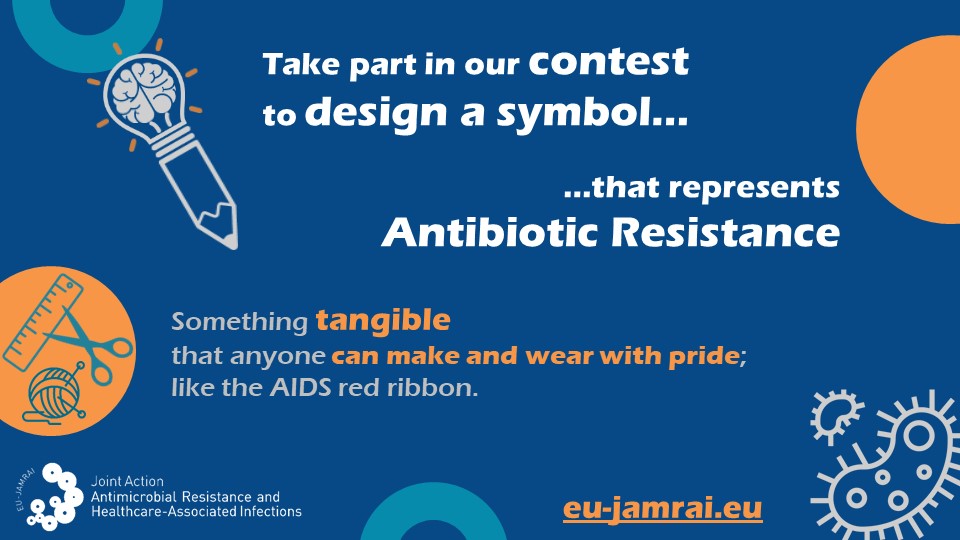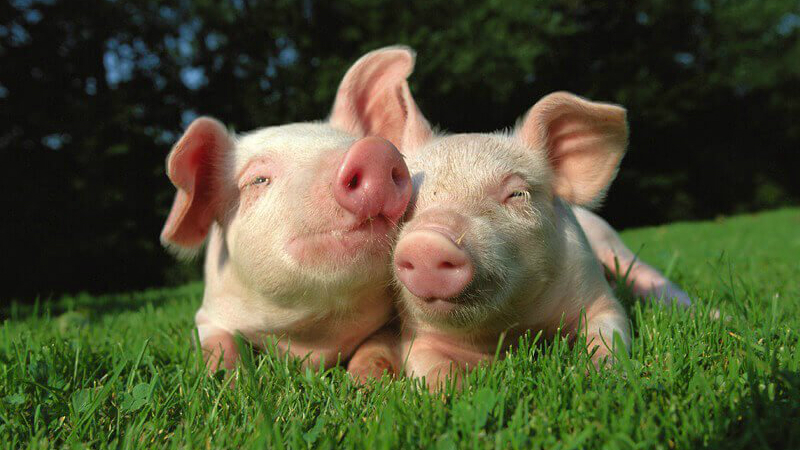
ASP Qualitative Evaluation
13 November, 2019IMPORTANT: please note that the Antibiotic Resistance Symbol contest officially closed the 31st March 2020. This page contains the materials used to promote the contest, its rules and judgment criteria.
To discover the winning symbol visit the Antibiotic Resistance Symbol webpage here.
Antibiotic resistant bacteria are a global threat and one of the biggest challenges we face, but a lot of people don't know about it. We need to change that!
Be a change maker and take part in our design contest!
We are looking for a symbol that represents the global threat of antibiotic resistance. Something anyone can make at home and everyone, anywhere can wear.
Who can enter
The contest is open only to individuals. The contest is not open to companies, educational institutions, organisations, etc. or to groups associated with such institutions.
People under the age of 18 must have consent from a parent or legal guardian before submitting designs into the contest. If you are minor, you must include this consent form with your application.
The winner must be a person aligned to EU-JAMRAI mission and vision.
How to enter
- No more than two symbols may be submitted by one single participant.
The deadline for submitting designs is 31st March 2020, at 23:59 Central European Time. - EU-JAMRAI will not assume any responsibility for late submissions or corrupted files. Likewise, EU-JAMRAI will not be responsible for technical errors that prevent participants from sending their symbols.
- EU-JAMRAI will anonymize entries before the judging process. Entries with attachment files containing references to the author will be disqualified.
- Incomplete submissions, submissions that do not follow specifications required, as well as submissions that are not related to the topic or that engage in obscene, racist, violent or defamatory content, will be automatically disqualified.
- Entries must conform to the Submission Guidelines explained in this website. Entries that do not conform this Submission Guidelines will be rejected.
- EU-JAMRAI reserves the right to disqualify any participant or submission at its sole discretion.
Jury
The jury will be multidisciplinary and multisectoral, including representatives from EU-JAMRAI, the Stakeholders Forum, scientists, regulatory bodies and patients organisations.
Following our “One Health” mandate, we will try our best to have representatives of organisations related to the environment, human and animal health.
The jury will be composed by:
- Senior advisors: high level contacts from international agencies and organisations.
- Technical advisors: communication, design and behaviour change experts.
Judgement criteria. What are we looking for?
Please read carefully this information before creating and submitting your symbol.
Remember that submissions that do not conform these criteria and the other Submission Guidelines explained in this website will be rejected.
If you need some inspiration, here is a great example of what we are looking for: the AIDS red ribbon.
REMEMBER:
- We DO NOT want a digital logo or illustration.
- We are looking for something TANGIBLE that can be CRAFTED.
- A symbol that we can all WEAR with pride; like the AIDS red ribbon.
The symbol NEEDS TO:
- Be easy and cheap to reproduce by anyone, anywhere.
- Convey the message of the antibiotic resistance global threat.
- Be original and not based on any pre-existing design.
What should you submit?
We count on your creativity but please remember to include in your submission:
- A picture of the crafted symbol.
- The crafting process (you can explain it with words or use a succession of pictures or a video).
We accept files in the following formats:
.doc / .png / .jpg / .gif. / .pdf / .mp4
We will also take into account the following criteria:
- Originality and quality of design.
- Being relatable to the "One Health" approach.
- Scientific accuracy.
Antibiotics are medicines used to prevent and treat bacterial infections. Bacteria become antibiotic-resistant when they adapt and change over time, developing the ability to resist the antibiotics designed to kill them.
The result is that many antibiotics are becoming less effective at treating bacterial infections. Our overuse (and misuse) of antibiotics in both humans and animals is speeding up this process.
People are already dying from antibiotic-resistant infections, and as more antibiotics stop working, more lives will be put in danger.
Among all infections, those associated with patient care in hospitals and long-term care facilities require a specific mention. These are called healthcare-associated infections and they are the most frequent adverse event in health-care delivery worldwide.
750,000 people die globally each year, due to infections with antimicrobial resistant bacteria.
Without working antibiotics, routine surgery like hip replacements, common illnesses like diarrhea, and minor injuries from accidents, even small cuts, can become life-threatening.
If the current trend continues, by 2050 more people will die from antimicrobial resistant infections than from cancer.
Antibiotic-resistant infections can affect anyone; we are all at risk of infections from antibiotic-resistant bacteria. But we can solve this problem by taking action now to keep the antibiotics we already have, in order to protect ourselves, our families and our communities.
Here are some things you can do to help keep antibiotic effectiveness:
- Only use antibiotics when prescribed by a certified healthcare professional.
- Always follow your healthcare worker’s advice when using antibiotics.
- Never share or use leftover antibiotics.
- Prevent infections by regularly washing hands, preparing food hygienically, avoiding close contact with sick people, practising safer sex and keeping vaccinations up to date.
- Taking part in this contest!
Human health and animal health are interdependent and bound to the health of the ecosystems in which they exist. Many of the same microbes infect animals and humans, as they share the eco-systems they live in. Efforts by just one sector cannot prevent or eliminate the problem.
To explain this, we’d like to introduce you to Eric Van Den Heuvel, a Dutch pig farmer whose daughter, Evelin, was born with a heart defect and needed an urgent surgery. However, she was MRSA positive (MRSA stands for Methicillin-resistant Staphylococcus aureus), so she could not be operated in order to avoid spreading the bacteria among other hospital patients. When Eric discovered that the MRSA had come from his pigs, he made a total change in his farm hygiene system, which considerably reduced the use of antibiotics in his animals. Other farmers joint his initiative having a very positive impact at a national level. This reduction of antibiotic consumption turned into a decrease of antibiotic resistant bacteria in the country.
"One Health" is an approach to designing and implementing programmes, policies, legislation and research in which multiple sectors work together to achieve better public health outcomes.
Raising awareness
European Antibiotic Awareness Day is an annual European health initiative led by the European Centre for Disease Prevention and Control (ECDC) that takes place on 18 November with the theme “Keep antibiotics working”. Its objective is raising awareness about the threat to public health of antibiotic resistance and the importance of prudent antibiotic use.
World Antibiotic Awareness Week is a World Health Organization campaign held every November with the theme “Antibiotics: Handle with care”. It aims to increase awareness of global antibiotic resistance and to encourage best practices among the general public, health workers and policy makers to avoid the further emergence and spread of antibiotic resistance.
More info & Fact Sheets:



